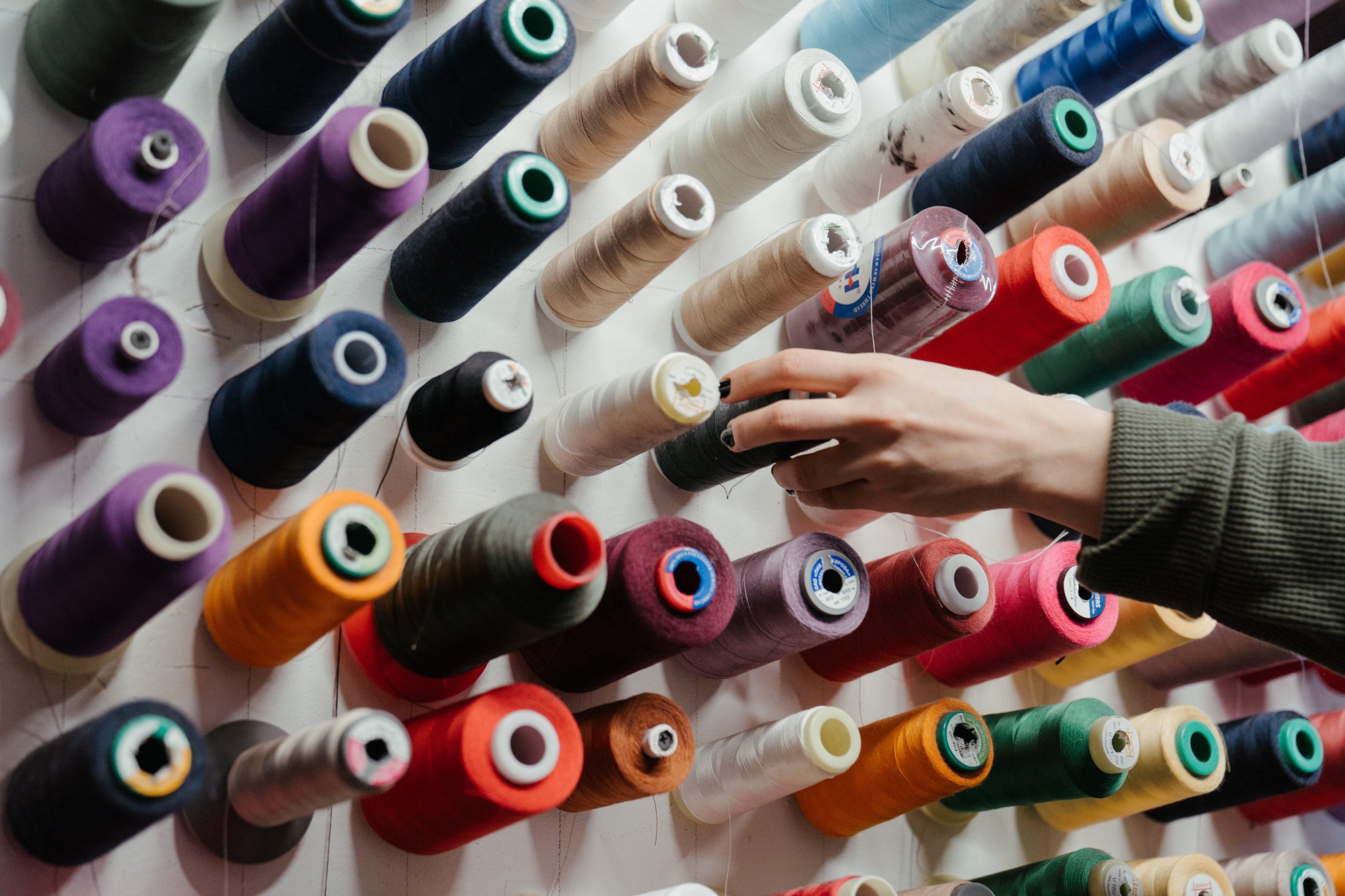Choosing the correct thread for your sewing machine is not only essential for ensuring the best final product, but can also make the task at hand easier, or more difficult. To ensure a hassle-free sewing experience, it’s best to take some time to consider which thread best suits the materials you are working with prior to sewing. But what are the differences between thread types, and which thread is best suited for your project and machine?
Threads explained
Choosing the right thread from the many varieties out there can quickly become complex and overwhelming. Therefore, it can be helpful to focus on the weight/thickness, fibre and finish of your thread in relation to your material. Think about how your seams will be stressed and strained, and how visible you want your stitching to be.
A heavier or thicker thread will create a stronger, less flexible stitch, making it best suited to thicker fabrics. However, thicker threads also tend to be more visible — this an important factor to consider with your project in mind.
Thinner threads, on the other hand, while less visible, often tend to be weaker, making them more ideal for lighter materials.
It is also important to consider the quality of your thread. Investing in a good quality thread will mean it is less likely to break or fray.
Matching thread to fabric
The most common thread you will come across is all-purpose polyester thread, which is compatible with practically every machine and fabric. Polyester tends to be strong, fine and flexible, making it great for sewing clothing.
When quilting, however, you may find a heavier thread, such as cotton, is your best option. Cotton thread, while weaker than polyester, works well with quilting fabrics and adds a visual element to your seaming.
The most popular thread for hand embroidery and embroidery machines is rayon thread, one of many kinds of embroidery thread. Rayon is incredibly durable and has a reflective sheen, making it visually ideal for embroidery designs.
Colours
When it comes to choosing the colour of your thread, the creative power is really in your hands. It is always a good idea to have a standard and reliable black and white thread at hand, as these are colours compatible with any pattern or design.
Additionally, it is important to remember that thicker threads are more likely to show on your product, so make sure you are happy with your colour scheme before you begin sewing.
Machine specifics
Our team at Franklins are experts in everything sewing machine related and believe it’s important to point out some helpful tips for using threads with different types of machines.
When working with an overlocker machine, think about the quantity of thread the machine will use, which is much higher than a regular sewing machine. Make sure you stock up on plenty of thread, as your life will be made much easier if your thread doesn’t run out halfway through!
Franklins sewing machines
At Franklins Group, we are one of the UK’s leading sewing stores and have been helping our customers with all their sewing needs since 1956. Our experts are happy to help you with any thread queries, and if you are having trouble regarding your machines, you can contact your local Franklins Group Store to book a repair. Be sure to check out our handy blog for further advice on everything sewing and browse our site to satisfy all your sewing needs!

